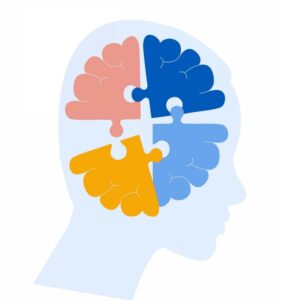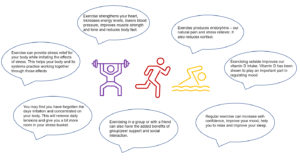
This week, we are sharing a series of resources to help you get involved and relax. Resources include how you can connect, relax, reflect on maintaining your physical health and ask for help when you need it.
Connect: Dr Who?…Let’s talk about Stress Webinar
 Although there is no medical definition of what stress is, we all know what stress feels like to us. We can’t promise that you will emerge from the Dr Who session completely stress-free but you will have had the opportunity to talk to colleagues who feel the same and explored some ways others have found to deal with their stress.
Although there is no medical definition of what stress is, we all know what stress feels like to us. We can’t promise that you will emerge from the Dr Who session completely stress-free but you will have had the opportunity to talk to colleagues who feel the same and explored some ways others have found to deal with their stress.
Who is this webinar for: Coventry Uni Postgraduate Researchers
Sign-up HERE
Relax: Meditation and Fractals
Mindfulness is about being aware – of where we are, what we are doing and how we are feeling. This can help us notice signs of stress or anxiety earlier and help us deal with them better. Examples of being mindful could be:
- breathing exercises
- yoga
- meditation
- taking time to consider your thoughts
- walking outside, looking at what is around us.

This includes fractals, which are known as the ‘fingerprints of nature’, they are geometric figures which contain similar repeating patterns (think clouds, rivers, trees). A growing body of research has investigated the effects of fractal patterns on the human brain, with a research paper finding that looking at fractals can reduce stress levels by 60%. You can see examples of fractals in lots of design choices, including the websites.
See NHS mindfulness tips and support for more information.
Physical Health: Exercise & Nutrition
Exercise can reduce some of the emotional intensity that we feel when we are stressed. Although going for a run won’t make your stress disappear for good or solve the root cause of your stress, it can benefit you in a number of different ways.
What’s on across @cusportcentre
Learn more about how you can maintain your physical health and wellbeing, including:
- Posture Fixes and Core Strength
- May: National Walking Month
- A-Z of Dance
- Hydration and Beverages
https://livecoventryac.sharepoint.com/sites/students-connections-matter/SitePages/Physical-health-and-wellbeing.aspx
Nutrition & Diet
Learn more about:
- Healthier snacking while at home
-
Healthy Habits You Should Develop
-
Get help to manage alcohol consumption
https://livecoventryac.sharepoint.com/sites/students-connections-matter/SitePages/Physical-health-and-wellbeing.aspx
Asking for help
We all need to ask for help with a stressful situation, from time to time. This could be asking your supervisor, a peer/colleague, or a family member for support. What that looks like will depend on the situation of course.
Mental Health and Wellbeing Zone

If you are concerned about a mental health issue and feel you need some extra support, the coordinators at the Mental Health and Wellbeing zone are available to talk to. The role of the coordinator is to listen to you and assist you in understanding the options available to you, for example, referral to an appropriate service for support.
The team operate a bookable support service for PGRs and staff. Book a confidential appointment using the dedicated booking form or email on wbzone@coventry.ac.uk and you will be contacted by one of our mental health coordinators during normal working hours (9.00am – 5.00pm) Monday to Thursday.
Key Contacts at the Doctoral College & Centre and wider University
Including key contacts regarding ethics, finance and other areas of academic and well-being support
Samaritans: If you’re having a difficult time
The Samaritans charity have some resources that might be helpful for anyone having a difficult time.

